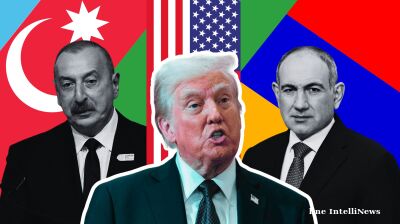Tensions between Cambodia and Thailand have sharply intensified in recent weeks following an armed skirmish that left one Cambodian soldier dead in late May, triggering a cascade of retaliatory measures and nationalist mobilisation on both sides AP reports.
On May 28, Thai and Cambodian troops exchanged fire in a disputed “no man’s land” along their 800‑km shared frontier. Both sides claimed self‑defence. As AP has previously reported, “both sides have said they acted in self‑defence. One Cambodian soldier was killed”
Although the governments publicly pledged to de‑escalate, a series of non‑military tit‑for‑tat actions quickly followed. Thailand tightened border controls, restricting crossing hours and Cambodia responded with sweeping bans and power cut‑offs.
The Cambodian Senate president, Hun Sen, warned that “Thai fruit and vegetable imports would be banned if restrictions aren’t lifted by Tuesday” (June 17). Meanwhile, Phnom Penh also “banned Thai movies and TV shows, stopped the import of Thai fruits and vegetables and boycotted its neighbour’s international internet links and power supply” reports continue.
In Phnom Penh, tens of thousands have also attended a government‑organised march in support of the military and sovereignty. Protesters chanted slogans pledging loyalty to Prime Minister Hun Manet and his father, Hun Sen, while condemning Thailand’s actions.
The underlying dispute traces back to colonial-era demarcations. Cambodia relies on a 1907 French map, while Thailand argues its accuracy is flawed. The contested territory again includes land near the 11th‑century Preah Vihear temple - an issue previously referred to the International Court of Justice (ICJ), which ruled in Cambodia’s favour in 1962 and reaffirmed that in 2013.
Cambodia has now submitted four additional disputed areas to the ICJ, declaring it “would no longer discuss these areas under the bilateral mechanism”. Thailand, however, refuses ICJ jurisdiction and insists on resolving the matter via the joint boundary committee established in 2000.
The current standoff constitutes the most serious deterioration in Cambodia‑Thailand relations since the Preah Vihear crisis of 2008-11. With diplomatic channels stalled and domestic political pressures mounting on both sides, the risk of further escalation remains elevated.
As Cambodia advances its ICJ case and Thailand digs in on bilateral protocols, observers note that rising nationalism - not strategic gain - is increasingly fuelling both countries’ postures.
News

US imposes travel restrictions on personnel in Zambia’s Copperbelt over toxic spill
The US government has imposed travel restrictions and reassigned personnel in parts of Zambia’s Copperbelt Province following a toxic spill from the Sino Metals Leach Mine.

Thousands protest in Kosovo against The Hague-based war crimes court
Protest reflects rising frustration among segments of Kosovo society over the perception that the Specialist Chambers is biased and lacks legitimacy.

Slovenia bans imports from Israeli settlements in occupied Palestinian territories
Ban needed in response to humanitarian catastrophe in Gaza, says Slovenian Foreign Minister Tanja Fajon, one of the most vocal EU critics of Israel’s actions in Palestine.

Trump to host leaders of Azerbaijan and Armenia as they close in on strategic transit deal
Landmark summit is expected to yield a joint peace framework and the launch of a major US-led infrastructure project across the South Caucasus.




